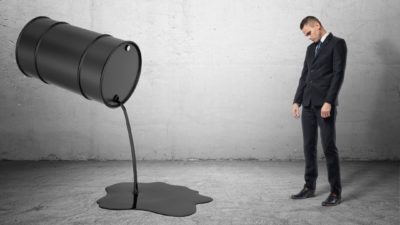It was a very volatile five days for the S&P/ASX 200 Index (ASX: XJO) last week. After a series of ups and downs, the benchmark index eventually dropped 66.1 points or 1.1% to end it at 5859.4 points.
While most shares on the index tumbled lower with the market last week, some fell more than most. Here's why these were the worst performers on the ASX 200 over the period:
Nearmap Ltd (ASX: NEA)
The Nearmap share price was the worst performer on the ASX 200 last week with a 15.5% decline. Investors were selling the aerial imagery technology and location data company's shares after it completed its fully underwritten institutional placement. Nearmap raised $72.1 million at a 4.2% discount of $2.77. The company raised the funds to take advantage of industry tailwinds and support its growth. Also weighing on its shares was a broker note out Goldman Sachs. Its analysts downgraded Nearmap's shares to a neutral rating on Friday.
Origin Energy Ltd (ASX: ORG)
The Origin share price wasn't far behind and dropped 12% over the five days. This appears to have been driven by a pullback in oil prices last week. Oil prices came under pressure due to demand concerns after Saudi Arabia made very deep monthly price cuts to offload its oil.
Resolute Mining Limited (ASX: RSG)
The Resolute share price was out of form and tumbled 11% lower last week. Investors were selling the gold miner's shares after it revealed that workers at its Syama operation in Mali have threatened to strike. Syama is an important operation for Resolute and contributed 59.4% of its total production during the second quarter. In light of this planned strike, the company has withdrawn its production and costs guidance for FY 2020.
GrainCorp Ltd (ASX: GNC)
The GrainCorp share price was a poor performer and dropped a sizeable 10.5% lower last week. This may have been driven by a broker note out of Morgans. Its analysts retained their hold rating and cut the price target on the company's shares to $4.18. It expects that strong demand for grain in the domestic market after three years of drought will prevent the company from fully benefiting from higher margin exports.








